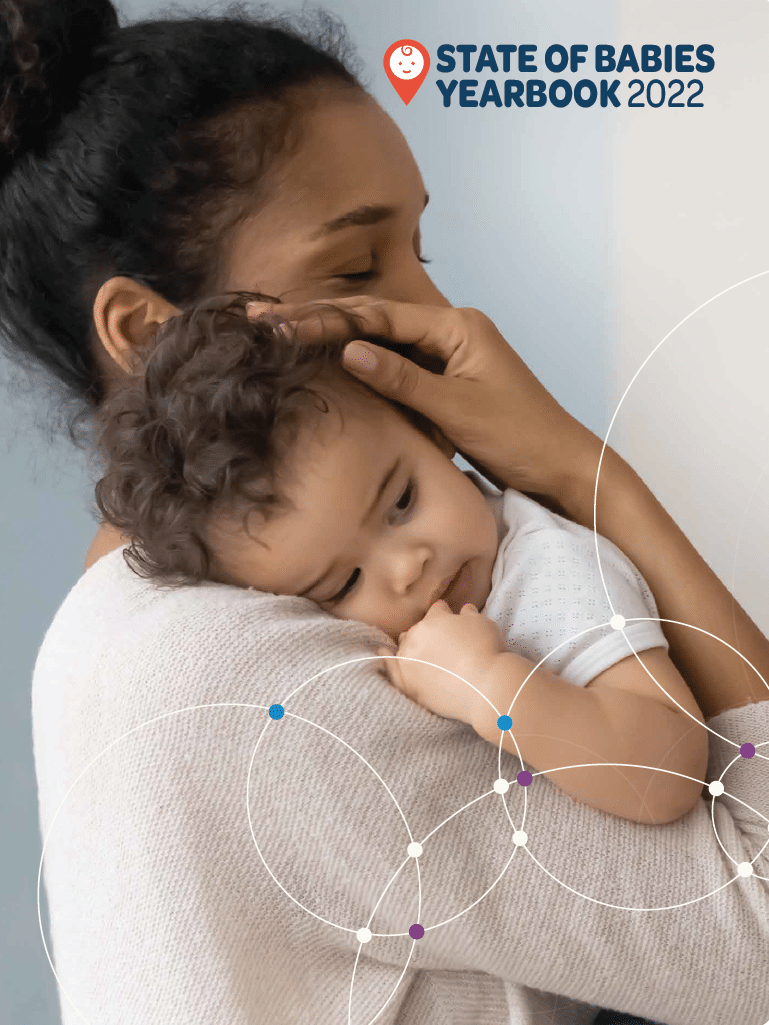New Policies in Georgia Put the State on Track to Increase Support for Babies

By: GEEARS
New data indicates families with infants and toddlers, particularly in underserved communities, continue to struggle, but visionary state legislation could be a game-changer.
ATLANTA, GA – Our brains grow faster between the ages of 0 to 3 than at any later point in our lives – forming the foundation for all future health and learning. The State of Babies Yearbook: 2022, released on May 3 by national early childhood development nonprofit ZERO TO THREE, provides a snapshot of how Georgia’s infants, toddlers, and families are faring in comparison to the rest of the country.
In times of both crisis and calm, Georgia’s youngest children and their families have faced obstacles. This has been particularly true for children of color and those living in families with low incomes. Systemic racism and inadequate wage structures have made it difficult for families to reach their true potential.
At this critical time, with families struggling amid the economic fallout from the ongoing public health crisis, the State of Babies Yearbook: 2022 compiles 60 indicators that affect the well-being of children prenatal to 3 years old. It provides an in-depth look at national and state-by-state progress across three policy areas: Good Health, Strong Families, and Positive Early Learning Experiences.
ZERO TO THREE offers a unique grading scale to describe how well states are supporting infants, toddlers, and their families. The G.R.O.W. scale measurements include Getting Started, Reaching Forward, Improving Outcomes, and Working Effectively. By this metric, Georgia is labeled as “Getting Started” when it comes to good health and strong families. The yearbook found that Georgia is “Reaching Forward”—a higher grade—in the category of positive early learning experiences.
Effective policies and programs in Georgia can make a difference in families’ ability to reach their full potential. The Yearbook highlights areas where Georgia can do better for its babies. For example, 7.2% of Georgia’s infants and toddlers are uninsured, compared with 5.1% nationally, and the average state cost of center-based infant care represents 32.3% of a single parent’s income.
“Though all babies are born with unlimited potential, opportunities for Georgia’s babies to grow and flourish are not shared equally,” shared Miriam Calderón, Chief Policy Officer at ZERO TO THREE. “These findings show that disparities facing babies of color and babies in families with low income are draining our nation’s future potential and leaving parents to fend for themselves. Without immediate action, our policymakers’ longstanding failure to enact powerful family-centered policies and programs will have lasting effects on children, their families, the state of Georgia, and our nation. As advocates for babies, we must push for policies that we know will address the barriers our children face.”
“GEEARS: Georgia Early Education Alliance for Ready Students is proud to have advocated for policy changes designed to face these challenges with decisiveness and urgency,” said GEEARS’ Executive Director, Mindy Binderman. “Recent wins include the extension of pregnancy Medicaid from six to twelve months, increased access to lead testing and remediation, and over $3 million in additional state funding for child care. With these achievements under our belt, GEEARS will continue to advocate for Georgia’s youngest children and their families.”
Decisions that affect babies and families happen at all levels of government. GEEARS has joined ZERO TO THREE and more than 70 other national and state organizations to elevate the needs of infants, toddlers, and their families as a priority for elected officials across the country. On May 17, they will join families and babies from all 50 states and DC to urge Congress to boldly invest in our future as part of the national Strolling Thunder event.
To access the national profile and state data, visit stateofbabies.org.
